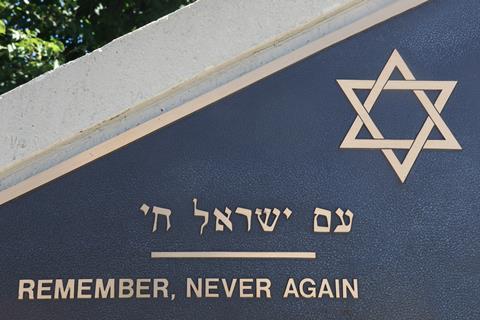Former Ministerial Private Secretary Sharmila Meadows explains why Christians cannot be indifferent to the plight of Israel.

This Saturday, 27 January marks the annual Holocaust Memorial Day. Perhaps never before has its backdrop been so feverish with virulent and pervasive anti-Semitism and international antagonism towards Israel. Our streets have witnessed anti-Semitic chants and banners of a magnitude resonant of the darkest days of Nazi Germany.
As Christian women, it can be difficult to process the horror or know what to feel. Yet, God has set his standard in his Word and calls us to follow – and he is far from silent on Israel. From the promise to Abraham, through the Old Testament prophets and the laments of David in the Psalms, Scripture echoes with God’s tender heart towards Israel and the Jewish people. A heart we cannot ignore.
These women’s decisions involved incredible risk, but were necessary to honour God. Our choices matter.
In the Bible, we find women caught at a similar historic crossroads to us, being asked of God how they will respond to the plight of Israel. Both Rahab and Esther made high stakes political decisions concerning the Jewish nation. While it was the counsel of Mordecai that encouraged Esther to take her stand and defend God’s people (see Esther 4:13-14), Rahab, although not Jewish, perceived God’s mighty hand on Israel and so knew how to interpret the hour. Her speech in Joshua 2:8-13 is a witness to us all. These women’s decisions involved incredible risk, but were necessary to honour God. Our choices matter.
When I worked as a Ministerial Private Secretary, I was honoured to cover the anti-Semitism and Holocaust Memorial brief. It brought me significant life moments, of which the most enduring were a visit to Auschwitz-Birkenau (the largest German Nazi concentration camp) and my conversations with Holocaust survivors. At Auschwitz, the sight of warm winter blankets for German soldiers, made from the hair shaved from Jewish women upon arrival, pierced the deepest of the multiple layers of evil on display. Hair shaved to humiliate and dehumanise. Hair robbed from women considered unworthy to marry, date or even touch a German man, now used to keep those same men warm.
These stories need to be told. Now more than ever.
From survivors, I recall the gentle lady I spoke with in 2014 who felt that that was the most nervous the Jewish community had felt since the 1930s. That was a decade ago. And I will never forget the traumatised gentleman who told me how no history book had ever captured the full extent of what took place in those Nazi camps and how only those present will ever really know. My sole response was tears, but that bonded us more than words.
Read more on Israel
The current conflict in Israel is every Christian’s busines
I was in Israel attending a wedding when the fighting started, this is what God showed me
I am a Jewish mum in Israel, this is what life is like for my family
These stories need to be told. Now more than ever. When I studied Nazi Germany at university, it prepared me for what I witnessed at Auschwitz and heard from those precious survivors. It has not prepared me for today. Some 130 Israeli hostages are still experiencing unimaginable and unrepeatable horrors, while across the democratic world, the streets ring with genocidal chants.
We must look to our Bibles more than media outlets to interpret current events and comprehend the times as Rahab did
However, where studies could not prepare me, Scripture can. We must look to our Bibles more than media outlets to interpret current events and comprehend the times as Rahab did. God is not opaque about Israel or what he expects of us. He is the God who watches over Israel (Psalm 121:4), who calls us to bless her (Genesis 12:3), to pray for the peace of Jerusalem (Psalm 122) and who through his Word assures us that he will continue to love the people for whom he parted the Red Sea and through whom he brought our Saviour.
This could be our Rahab or Esther moment. It’s time we searched the Scriptures so that, like those biblical heroines, we might grasp what God is asking of us at such a time as this.




































1 Reader's comment